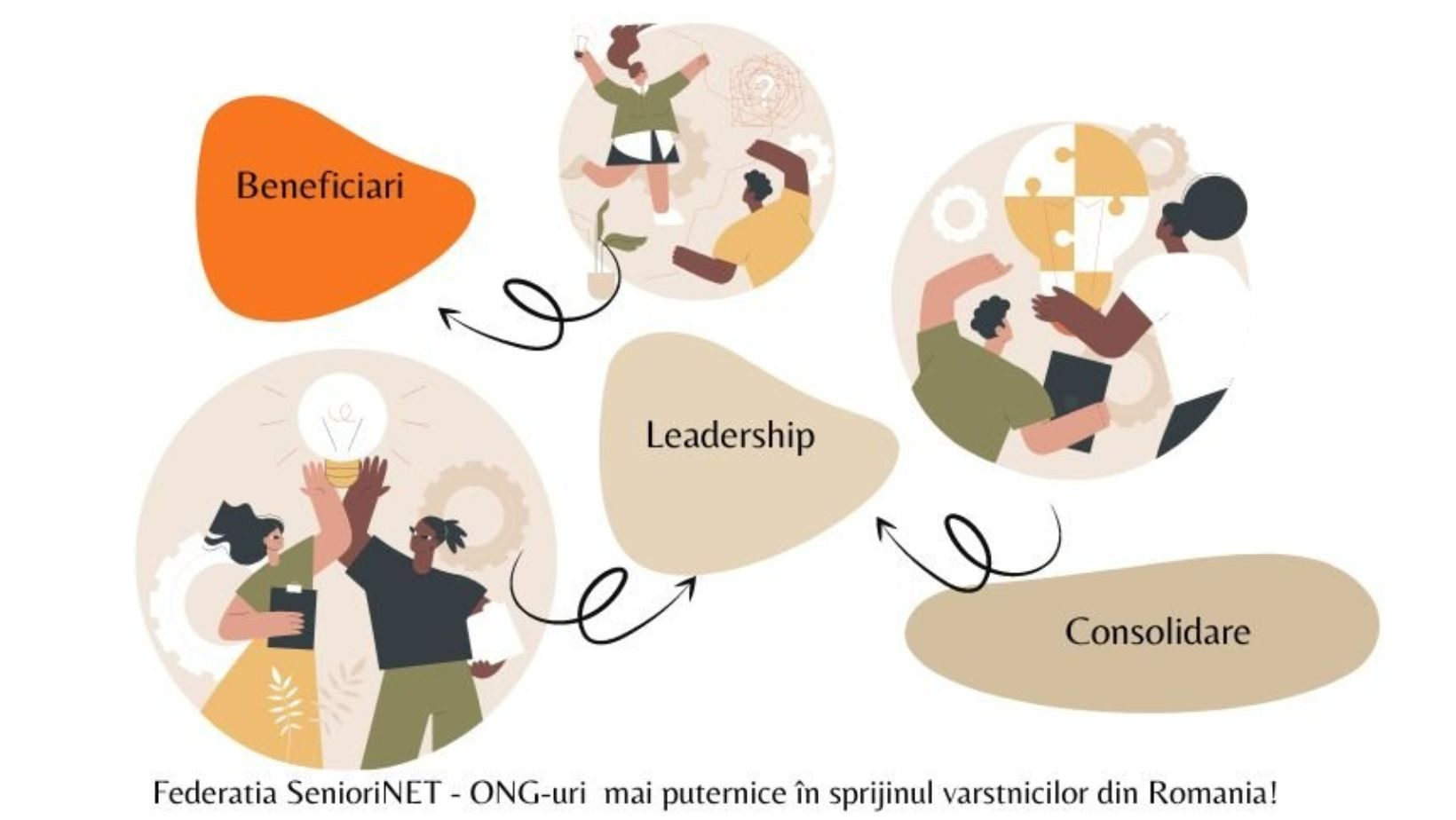Interviews with stakeholders to develop the Federation’s Strategic Plan (IV)
In order to develop the Federation’s Strategic Plan and to respond to the needs of SenioriNET members, stakeholder interviews were conducted and a series of questionnaires were administered to member organisations.
These are the most relevant findings. (part 4)
– All energy around the beneficiary: ‘The voice of the elderly should be at the centre of the discussion. Not a passive voice, but an active one, without positionning them just as who receive difrent services”; “This fragmentation of services is not the main issue, the beneficiary should be at the centre of all activities – the needs, the offers dance around the client and not the client running from one service to another and then giving up.
If you do an interview about how they relate to health or social services, the beneficiaries say „I don’t even go because they just take me on the road, spend money, waste time and burry me because of some civil servants”; ” In this area it is the only viable way to approach it. I go into the man’s house and someone tells me an algorithm, what I have to do – I have dehumanized both people.”; “Let it not be the problem of the ministries, let it be the problem of the man addressed by the ministries.”
– Agile rules: “Invest in unbureaucratic communication, as uncomplicated as possible, as clear as possible.”; “If form will precede content, it will make a bonsai.”; “Letters do not generate life. If we think that a new rule or a new organisation in the administrative sense brings life, we are wrong.”
– Leadership: “There should be a man who is all about that. Someone to move: ‘Now is the time, we have to go. Can you come? Can you prepare? Send that I’m going ahead. It’s important that more people are there, that you come.’ Come in, ask, come with ideas, keep the agenda. Get more ideas. He’s keeping himself informed to keep the pulse. The others come around. You need a coach, a conductor. He doesn’t do it but he knows the resources.”
– Need for rapid consolidation: “To be a force you have to invest in your own capacity. If the members we reactivate would understand that at least in the start-up phase there needs to be more input, more support, they would soon start reaping the benefits for their own organisations.”
– Advocacy opportunities: “A federation able to mobilise and get voters’ attention so that politicians are afraid of not getting re-elected.”; “Identify where the low hanging fruits are. Make a list of priorities you want to work on. Focus especially on what you can win, get, change. Map and assess what those priorities might be.” (e.g. Alignment to European standards which Romania has to do anyway because otherwise it loses funding – there is political openness there and there is an agenda);
“Political advocacy and institutional advocacy: keep strategic, collaborative partnerships with government. Make positive changes for people in need (political) and at the same time get funding (institutional).” Minimal effort: ” Narrow down so not be overwhelmed, because you cannot change everything, so focus on low hanging fruits. Focus on the political agenda and communicate the messages. Formulate messages at the beginning and keep re-posting annually. Everyone say the same thing in a coalition.”

